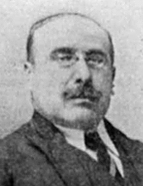

Pedro de Azevedo ’ s persistent activity of publishing documents earned him the heartfelt and always confessed admiration of his fellow scholars, both in Portugal and abroad, as well as the respect of successive generations of historians because it was a very reliable body of publications, with the added advantage of serving as a basis for very different types of studies, as such unsuspecting personalities as Gama Barros, Leite de Vasconcelos, António Baião , or Lindley Cintra have rightly pointed out.
It was , therefore , as a historian, diplomatist and palaeographer that Pedro de Azevedo most distinguished himself. However, the research he carried out in the fields of philology, ethnography, heraldry, onomastics, iconography, numismatics and even geography should not be overlooked, although they almost always proved to be subsidiary topics for what was the main body of his work: historical research.
In fact, the articulation of historical studies with these disciplines was not unique to Pedro de Azevedo. It was a common practice among the main authors of the time, linked to erudite historiography. However, in his specific case, the meticulous, systematic and highly scrupulous work to which he subjected the documentation proved to be extremely fruitful and useful: he made numerous unpublished documents known, carried out rigorous transcriptions of sources, was the basis for important critical editions of documentary collections , and enabled the reorganisation of important bibliographic and archival funds. A set of actions that go back to his academic training, but which are, above all, the effect of two factors, in happy and close correlation: continuous palaeographic training, exercised over many scripts and different scribes ’ hands from the most varied periods; coupled with a deep knowledge of archives and documentary collections, resulting from the experience accumulated in positions and functions linked to archivology and librarianship, carried out in the two public reference institutions of the national archives and libraries network: the Archives of Torre do Tombo and the National Library of Lisbon.
This work is financed by national funds through FCT - Foundation for Science and Technology, I.P, in the scope of the projects UIDB/04311/2020 and UIDP/04311/2020.
